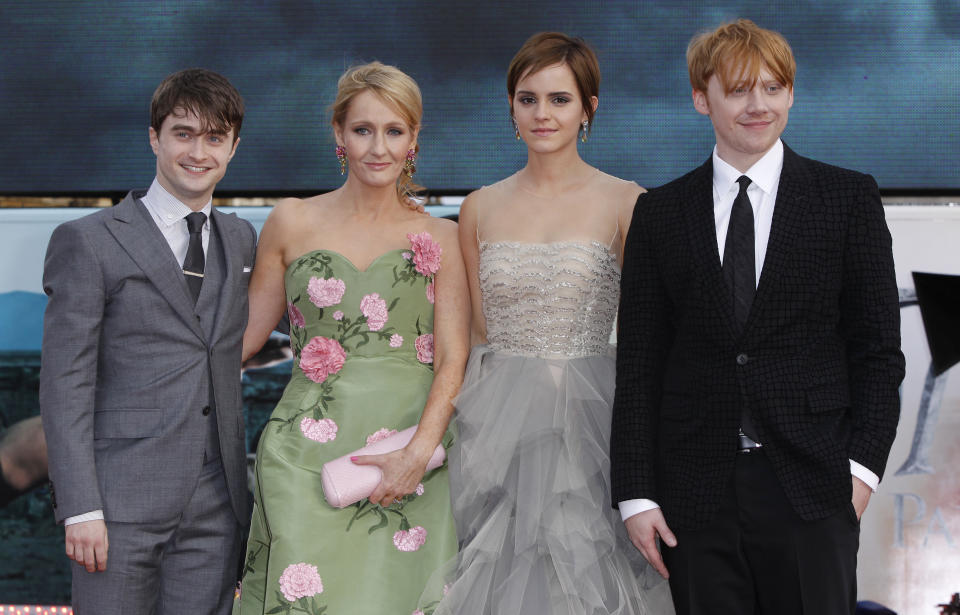Daniel Radcliffe apologises for JK Rowling comments in transphobia row

Daniel Radcliffe has apologised to fans of the Harry Potter series, in the wake of the JK Rowling transphobia row.
Radcliffe, who played the boy wizard over eight movies, said in a statement that he hoped that Rowling's comments did not 'tarnish' the books.
Read more: Harry Potter star Katie Leung fires back on Rowling trans comments
Rowling hit headlines over the weekend, after posting a tweet in reaction to a headline in which she objected to the use of the world 'people' with reference to menstruating.
“I’m sure there used to be a word for those people. Someone help me out. Wumben? Wimpund? Woomud?” she wrote.
‘People who menstruate.’ I’m sure there used to be a word for those people. Someone help me out. Wumben? Wimpund? Woomud?
Opinion: Creating a more equal post-COVID-19 world for people who menstruate https://t.co/cVpZxG7gaA— J.K. Rowling (@jk_rowling) June 6, 2020
However, she was quickly criticised over the tweet, and accused of transphobia, as transgender people now identifying as men can also menstruate.
Releasing a statement through US non-profit organisation The Trevor Project, an LGBTQ suicide prevention charity, Radcliffe said: “Transgender women are women. Any statement to the contrary erases the identity and dignity of transgender people and goes against all advice given by professional health care associations who have far more expertise on this subject matter than either Jo or I.”
Read more: Twitter roasts Rowling for detailing Dumbledore’s sexual history
He went on: “To all the people who now feel that their experience of the books has been tarnished or diminished, I am deeply sorry for the pain these comments have caused you.
“I really hope that you don’t entirely lose what was valuable in these stories to you. If these books taught you that love is the strongest force in the universe, capable of overcoming anything; if they taught you that strength is found in diversity, and that dogmatic ideas of pureness lead to the oppression of vulnerable groups; if you believe that a particular character is trans, non-binary, or gender fluid, or that they are gay or bisexual; if you found anything in these stories that resonated with you and helped you at any time in your life — then that is between you and the book that you read, and it is sacred.

“And in my opinion nobody can touch that. It means to you what it means to you and I hope that these comments will not taint that too much.”
Rowling quickly defended herself, following the criticism.
“If sex isn’t real, there’s no same-sex attraction. If sex isn’t real, the lived reality of women globally is erased,” she responded. “I know and love trans people, but erasing the concept of sex removes the ability of many to meaningfully discuss their lives. It isn’t hate to speak the truth.”
She went on: “The idea that women like me, who've been empathetic to trans people for decades, feeling kinship because they're vulnerable in the same way as women - ie, to male violence - 'hate' trans people because they think sex is real and has lived consequences - is a nonsense.
“I respect every trans person's right to live any way that feels authentic and comfortable to them. I'd march with you if you were discriminated against on the basis of being trans. At the same time, my life has been shaped by being female. I do not believe it's hateful to say so.”
It's not the first time Rowling has been accused of transphobia.
Last year, she publicly weighed into the case of researcher Maya Forstater, who was fired from her job at the Centre for Global Development after she tweeted that 'men cannot change into women'.
Rowling tweeted in support:
Dress however you please.
Call yourself whatever you like.
Sleep with any consenting adult who’ll have you.
Live your best life in peace and security.
But force women out of their jobs for stating that sex is real? #IStandWithMaya #ThisIsNotADrill— J.K. Rowling (@jk_rowling) December 19, 2019
In 2018, she also hit headlines after liking a tweet which referred to transgender women as ‘men in dresses’, though reps for the writer later said that it was an accident.

 Yahoo Movies
Yahoo Movies 

